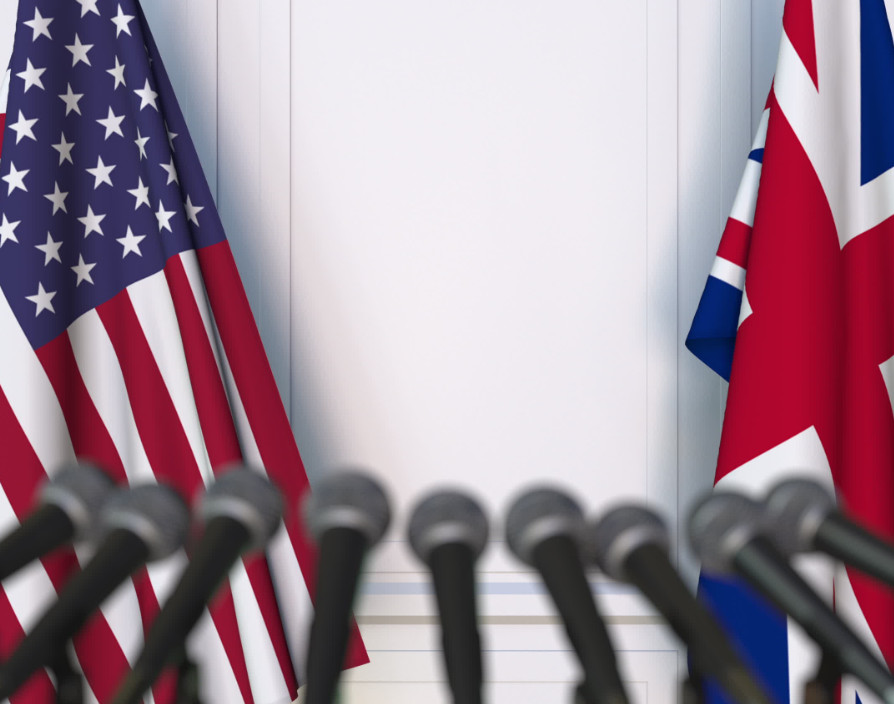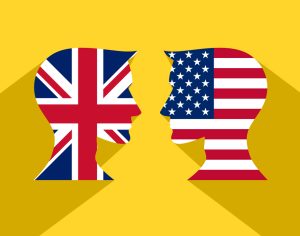‘Don’t hold your breath’
Arne Mielken tells British business owners there is no quick fix for those seeking a free trade agreement between the UK and US following Brexit. And he says such a deal may be more difficult than ever, in the wake of the recent American election.
While the battle for the White House goes on and on, British business owners and entrepreneurs are looking with excitement for signs of opportunities to boost trade with the United States. So what are the prospects of a free trade agreement between the two nations? Will 2021 signal a new free trade agreement between the UK and US? Now that Brexit is virtually done and dusted, business owners will be keen to start this ‘new period of freedom’ on the front foot. But, according to Arne, such deals do not happen overnight and with an apparent new incumbent at the White House ‘ although the current President has still not left town ‘ the future is far from certain. In his November column, Arne explains how British businesses can leverage the opportunity for a closer relationship with the US, post-election?
Dealing with the American establishment
Contrary to popular opinion, forging a deal with the United States is never easy. Regardless of whether the occupant of the White House is a Democrat or a Republican, trading with America has never been straightforward and especially if you’re a European. More than five years ago, while Barrack Obama was still in power, the United States and Europe formulated a proposed trade agreement called the Transatlantic Trade and Investment Partnership (TTIP).
It was predicted that, had the deal gone ahead, it would have boosted the economy of the European Union by €120 billion, with the US benefiting to the tune of €90 billion. But it never came to pass. Following Donald Trump’s inauguration as President, the States pulled out among fears of having a negative impact on democracy, influence, health, economy, society and the environment. Negotiations were certainly far advanced but, according to the European Commission, the previously proposed deal is now obsolete and no longer relevant.
Big win for US lobsters but Harley Davidson loses out
Under Trump, the United States embarked on a trade conflict with the European Union. This largely centred on subsidies in the aircraft industry. The United States were unhappy about Europe’s Airbus business, while the EU made a counter claim against American company Boeing. And the World Trade Organisation (WTO) accepted that both sides unfairly subsidised their aircraft manufacturers. At this point, both camps threatened to charge additional customs duties on various products, ranging from steel to Tennessee Whiskey and also Harley-Davidson.
This has now gone ahead and many US products have now become much more expensive to import into the EU, with the US having imposed such additional duties already in 2018.. One area where the US looked set to flourish, while Trump was still President, was the elimination of EU tariffs on live and frozen lobster products. In 2017, this market amounted to $111m, and many have speculated that this helped Trump secure one Electoral College vote in the New England coastal state of Maine.
Lessons to be learned by the UK
So what can the UK learn about trying to negotiate with the US? First, I would argue that trade agreements of this magnitude are usually highly political affairs, with strategies changing when new leaders take charge. Should the incumbent of the White House prefer a multilateral, rather than a bilateral approach to negotiations, then priorities may shift. It is quite possible that the once abandoned TTIP trade deal could be resurrected, rather than pushing through an agreement with Britain alone.
Secondly, to be successful, negotiations with the US should be transparent and ensure that all relevant voices in the United Kingdom be heard. This means listening to farmers, environmentalists, the finance sector and Non-Governmental Organisations (NGOs). People will only be happy to buy into a deal with the US, providing their own way of life remains largely untouched or changes in notably beneficial way, while not adversely affecting the environment, animals and plants. If the Government fail to involve society at an early stage, this can spell disaster for proceedings. Don’t forget, if it was easy to forge a deal with America, then the EU would have agreed one already.
Thirdly, negotiating a Free Trade Agreement (FTA) is complex and usually lengthy. Negotiators spend years debating aspects of it, drafting and then re-drafting, and this can happen many times over. It is then the turn of politicians to ratify such a deal with national and even regional parliaments, before it becomes law. There is no quick fix, and cannot be rushed through, and certainly doesn’t happen overnight. It doesn’t take months, but years. Should we ever get one, then brace yourself. A leaked draft agreement of the previously compiled TTIP had over 1,000 pages. It’s a great read just before bedtime ‘ not!
Businesses hoping for zero-tariff market access to the United States will find themselves flicking through pages and pages of legislation, along with their lawyers, to discover how best to apply the rules of such an agreement. In particular, businesses wishing to leverage the benefit of any agreement, would need to understand what is termed rules of origin. These determine the economic nationality of the goods being shipped. You need to make sure that the goods are actually from the UK or the US, and not secretly arriving from elsewhere. To completely understand how this planned legislation will work requires finesse and patience, along with plenty of background knowledge on the subject.
Conclusion: In America we trust, right?
Achieving an FTA with America appears to depend on what the US priorities are in 2021. A Brexit-favouring chief, such as Donald Trump who still hasn’t accepted defeat in the recent Presidential Election, would possibly be willing to push through a deal quickly to boost economic recovery in the States. But a White House occupant who is sceptical of the UK’s ‘Go-It-Alone’ strategy, and by all accounts this appears to be Joe Biden’s opinion, may tackle it differently.
It is still early days, and Trump does not depart Washington until January 20th, but when Biden finally takes the hot seat he may focus on domestic issues such as the fight against Covid-19 or healing racial divisions. Regardless, FTA negotiations are not a one-way street. Britain will exercise the right to defend its way of life and if the deal is not right, we should not expect our leaders to sign it. Negotiating with the United States should not be any different to dealing with the European Union in that sense. As an independent nation, and having fought so hard to get to where we are now, we should be selective with whom we make deals with and remember the price we are willing to pay for calling ourselves truly sovereign
“
Share via:








































